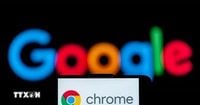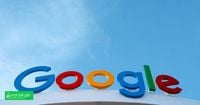On April 21, 2025, the highly anticipated antitrust trial against Google commenced, with the U.S. Department of Justice (DOJ) asserting that the tech giant must face stringent measures to curtail its use of artificial intelligence (AI) in bolstering its dominance in online search. The outcome of this landmark case could fundamentally alter the structure of the Internet, potentially stripping Google of its status as the primary gateway for users seeking information online.
The DOJ is seeking a ruling that would compel Google to divest its Chrome browser and implement additional actions to dismantle what it describes as an illegal monopoly in the online search market. In making its case, the DOJ drew parallels to historical antitrust actions that led to the breakup of major corporations such as AT&T and Standard Oil. "Now is the time to tell Google and all other monopolies that there will be consequences for violating antitrust laws," stated DOJ attorney David Dahlquist during his opening remarks.
Alongside a coalition of 38 state attorneys general, the DOJ is advocating for remedies aimed at restoring competition in the search engine market, which is increasingly integrating with generative AI products like ChatGPT. Dahlquist emphasized that the court’s ruling should be forward-looking, not overlooking impending developments in technology.
In a significant revelation during the trial, it was disclosed that Google has agreed to pay Samsung a substantial monthly fee to have its Gemini AI application pre-installed on devices. The exact financial terms were not disclosed, but Dahlquist characterized the amount as a "huge sum." This arrangement raises questions about how such deals contribute to Google's competitive edge in the AI landscape.
Federal Judge Amit Mehta had previously ruled that Google’s exclusivity agreements with various device manufacturers, which help maintain its monopoly, are a central issue in the case. On April 22, 2025, Nick Turley, the head of OpenAI’s product division, is expected to testify, providing insights into the competitive dynamics between AI developers and Google.
In contrast, Google’s attorney, John Schmidtlein, argued that the DOJ's proposals amount to a "wish list" for the company's rivals, asserting that these suggestions would not only be detrimental to Google but also hinder innovation in the tech sector. Schmidtlein contended that Google’s AI products should remain outside the scope of this antitrust case, which focuses primarily on search engines.
In a blog post dated April 20, 2025, Google’s Vice President of Legal and Regulatory Affairs, Lee-Anne Mulholland, warned that the remedies proposed by the DOJ could stifle American innovation during a critical period. Google has indicated its intention to appeal any final ruling that may arise from this trial.
The DOJ has proposed several measures aimed at dismantling Google's exclusive agreements with manufacturers like Apple and Samsung, which currently position Google as the default search engine on their devices. Additionally, the DOJ suggests that Google should be required to license its search results to competitors, a move that could significantly alter the competitive landscape.
If these measures fail to restore competition, the DOJ has indicated that Google may be forced to sell its Android operating system. Such a drastic step would mark a significant shift in the tech industry, potentially reshaping how mobile devices operate and compete.
Prosecutors are also expected to present evidence on how Google’s agreements to be the default search engine have inhibited the growth of AI companies, further complicating the narrative surrounding Google's market practices.
Google, valued at approximately $1.9 trillion, views the DOJ's proposals as extreme and plans to contest the final ruling vigorously. This trial is part of a broader antitrust initiative against major tech firms that began during the Trump administration and has continued under President Biden, showcasing a bipartisan effort to address perceived monopolistic behaviors in the tech industry.
Assistant Attorney General Gail Slater and other DOJ officials were present in court, underscoring the case's significance and the commitment to pursuing antitrust actions against Google. Slater recently celebrated a victory in another antitrust case against Google concerning advertising technology, demonstrating the DOJ’s ongoing scrutiny of the tech giant.
In a related ruling, Judge Leonie Brinkema determined that Google is liable for "deliberately acquiring and maintaining monopoly power" in the publisher ad server market and the ad exchange market. This ruling, documented in a 115-page memo, emphasizes the critical role that publisher ad servers play in managing digital advertising for websites, highlighting the broader implications of Google's market practices.
The ruling paves the way for further hearings to determine how Google must restore competition in these markets, including the possibility of divesting parts of its $31 billion online advertising business. However, the timeline for these proceedings remains undetermined.
U.S. Attorney General Pamela Bondi lauded the recent ruling as a "watershed victory" in the ongoing battle against Google's digital monopoly. Bondi affirmed that the DOJ would persist in its legal actions to safeguard Americans from tech companies infringing on free market principles.
This case marks the second court ruling in the U.S. affirming that Google holds an illegal monopoly, following a similar decision by Judge Amit Mehta regarding online search. Additionally, other tech giants, including Meta Platforms, are facing antitrust scrutiny related to their acquisitions of Instagram and WhatsApp.
The trial is expected to last approximately eight weeks, with significant implications for the future of online search, AI development, and the tech industry at large.



